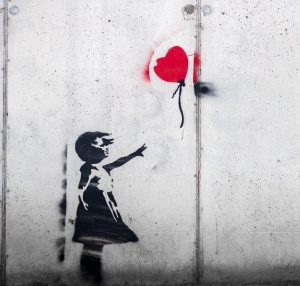
 Grief was a part of many of our lives in 2020. Some experienced the loss of a loved one, while many experienced the loss of an opportunity or experience. We often assume that grief is an emotion felt in the context of the loss of a loved one, but this is misleading. Grief is a common feeling that we experience when we lose a person or thing we love and value. Our grief is proportional to the amount of love or value we have for what we have lost. Therefore when we lose what we value greatly, we experience grief.
Grief was a part of many of our lives in 2020. Some experienced the loss of a loved one, while many experienced the loss of an opportunity or experience. We often assume that grief is an emotion felt in the context of the loss of a loved one, but this is misleading. Grief is a common feeling that we experience when we lose a person or thing we love and value. Our grief is proportional to the amount of love or value we have for what we have lost. Therefore when we lose what we value greatly, we experience grief.
It would be so much easier if loss and grief looked the same for everyone or if the process and emotion followed a linear path. But grief and loss looks different for each person and most often cannot be defined by a start or end date. For some, emotional expression is large, and it can be small and almost insignificant for others. Regardless of how our experiences might differ, the one thing that is the same for everyone is that our emotional experience is not permanent.
In order to understand what can result from our grief and loss, we need to see how the emotional process from these experiences can help create new chapters or stages in our lives. The pain of loss can often serve as the origins of transformation in our lives that we may never have expected.

For example, in addition to losing someone we love, many people experience grief after losing a job. During such a time, we come to terms with how our identity may have become tied to our position or title. We also begin to discover what might be next in our careers and lives. A loss like this can encourage us to expand and develop our interests and abilities as we pursue new and possibly different job experiences. Similarly, a loss such as a divorce can create more opportunities for reflection and work for confronting the roles we have taken that may have led to our marriage not working. This process can lead us to a change in ourselves and the way we relate to others. Then, there is the loss of memorable events such as holiday gatherings, weddings, graduations, and traditions. Each of these moments may feel like a loss at the moment; however, we make sense of the loss over time and allow change to occur. This change will enable us to make connections, traditions, and gratitude possible even in times of loss.
Here are 3 strategies to aid in the process of change during and after experiences of grief or loss:
1. Feel the loss: Remember, there are over a dozen types of grief, and they all look different from one another. To name a few, they are: Normal, Anticipatory, Delayed, Complicated, Disenfranchised, Chronic, Distorted, Cumulative, Prolonged, Exaggerated, Masked, Traumatic, Collective, Inhibited, Abbreviated, and Absent. With that many forms of loss, it may make it easier to understand why grief can look different in different people. That is why the first strategy to manage our symptoms of loss is actually to feel the loss. When we try to push aside or avoid our feelings, they can show up in more vigorous forms. So we might be edgy or moody to those trying to comfort and care for us, but that is because we haven’t made the space for them within our emotional process. Feeling our loss makes space for us to experience painful emotions with others. But first, we must learn from our feelings so that we can practice our resilience and grow in our internal resources for self-care.

2. Let go of the “shoulds/musts” that others offer us. It can be challenging to hear those around us, telling us what we “should” or “must” do or not do in order to feel better. We all come to our experiences of grief with our own story that supports the process of grief we need to follow. Whatever we are feeling in the moment makes sense to us, and we have the power and choice to stay in that moment, allowing ourselves to validate our needs.
3. Become comfortable with the pendulum of grief. Grief is most like a pendulum whereby there is a back and forth of emotions signaling to us feelings of happiness and sadness over time. This process is not a sign of a lack of progress or of things getting worse; rather, it signifies that we are moving forward in our grief process. Events or memories of things that matter most to us can trigger grief during our day. Growing with our grief and loss means allowing ourselves the space to make meaning out of our loss at the moment. The good feelings will inevitably be interrupted by sadness, and we grow by allowing ourselves the room to feel the pain of our loss. Having this space enables our grief to honor the person/thing we have lost as we build a more profound resilience.
Grief and loss are one of the difficult challenges we all face in learning more about ourselves. If you have experienced loss and are feeling grief, consider seeking help from a licensed professional counselor. A counselor can help you process your emotions and help you move forward by defining your loss’s meaning and its overall purpose in your life. Click here to schedule a free 15-minute consultation with one of our licensed therapists.
